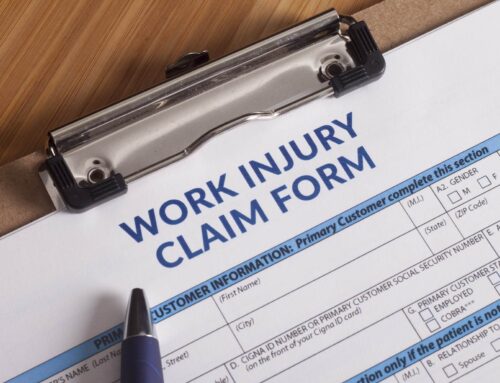By Tanya Phillips
If you are injured at work in New Jersey you are entitled to three workers’ compensation benefits: 1) Medical benefits, 2) Temporary disability benefits, and 3) Permanent partial disability benefits.
Medical Benefits
Your employer and/or its workers’ compensation carrier are permitted by law to choose the doctor who will treat you. They are responsible for the costs of all reasonable and necessary curative medical treatment for the injuries you sustained in the workplace accident. There are no deductibles or co-pays from you. Once the authorized doctor believes that you will not get any better from more treatment, they will indicate that you have reached maximum medical improvement.
After the doctor indicates that you have reached maximum medical improvement your employers’ workers’ compensation carrier is not responsible for providing any additional treatment. Treatment is usually palliative after you reach maximum medical improvement. Palliative means that the treatment makes you feel better but will not heal or help to heal your condition. Any palliative treatment you receive after the authorized doctor releases you is usually your responsibility and will not be paid for by the workers’ compensation carrier.
Temporary Disability Benefits (Wage Replacement)
If the authorized doctor keeps you out of work for more than seven days, you are entitled to temporary disability benefits. These benefits are 70% of your average gross weekly wage and there is a maximum amount per week that you can receive. The 2018 maximum temp rate is $903. Your gross weekly wage is calculated from your average weekly wage for the six months immediately before the accident. This figure should include overtime.
If the authorized doctor indicates that you can perform restricted or light duty and your employer does not have light duty work, then you are entitled to receive temporary disability benefits until the authorized doctor indicates that you have reached maximum medical improvement.
Permanent Partial Disability Benefits
After medical treatment concludes, you are entitled to a permanent partial disability award. In order to recover these benefits you must prove by objective medical evidence that (1) you have restrictions of the injured body part; AND (2) a lessening of your ability to work OR a substantial impairment of your non-work activities.
Permanent partial disability in New Jersey is paid according to the disability chart which includes values for all body parts. After you have been discharged from authorized treatment, medical records will be obtained and you will be examined by permanency experts who will apportion disability percentages for your injuries. When both sides have their respective expert reports, the claim is ready for settlement discussions.
Workers’ compensation awards are nontaxable. In many instances, once a permanency award has been entered, you are able to reopen the award if your condition gets worse. You must do so within two years of your last compensation payment.
This is a broad overview of New Jersey workers’ compensation claims. Each claim must be evaluated on a case by case basis. If you have any questions regarding potential workers’ compensation claims, please feel free to contact us. My firm handles these types of claims every day and we welcome your questions.





